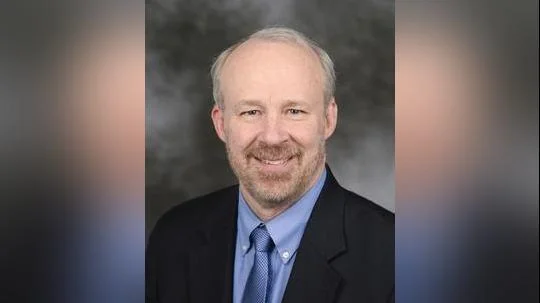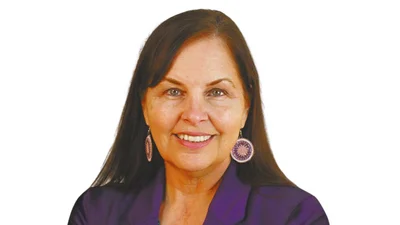Jeff Holm Vice Provost for Strategic Programming, Analytics, & Effectiveness | University of North Dakota
Jeff Holm Vice Provost for Strategic Programming, Analytics, & Effectiveness | University of North Dakota
The National Resource Center on Native American Aging (NRCNAA) has marked 30 years of service, focusing on improving the health and access to services for Native Elders. Established with the aim of gathering data on Elders in Indigenous communities, NRCNAA has played a crucial role in identifying and addressing their needs.
Dr. Collette Adamsen, director of NRCNAA at the Center for Rural Health within the University of North Dakota's School of Medicine & Health Sciences, stated, “The goal over the past 30 years, with everything the NRCNAA has done, has really been to improve the overall health for our Native Elders and connect them with more services to allow them to live healthier and happier lives.”
Adamsen emphasized the collaborative nature of their work: “When we do the needs assessment surveys, we are working with the communities in a partnership. They are essentially becoming the researchers – they collect the data and they administer the survey to their tribal Elders. This is a true partnership in research and data collection.”
The Administration for Community Living (ACL), which funds NRCNAA, noted that "In 1978, the Older Americans Act was amended to include Title VI," establishing programs for nutrition and supportive services for Native Americans.
Dr. Leander “Russ” McDonald recalled his experience with early surveys: “I would find surveys, meet with Dr. Ludtke on a weekly or biweekly basis over that summer, and we would determine what questions were a best fit for the population we were serving.” The endorsement by AoA/ACL led to significant expansion: “We were coming along fine... Then the ACL’s Administration on Aging (AoA) endorsed us, and things really took off.”
Currently working with over 200 Title VI programs representing more than 250 Indigenous communities, NRCNAA collected responses from 21,095 tribal Elders in its most recent survey cycle. Adamsen highlighted the importance of accurate data: “There was a real need to gather accurate data... People who help drive policy and allocations of funding want numbers – evidence there is a need for change.”
The newly-funded Resource Center on Native Aging and Disability (RCNAD) aims to provide long-term services and community support for Elders and those living with disabilities. Adamsen described it as "a larger version of the Native Aging in Place Project (NAPP)," emphasizing its significance for keeping Elders within their tribes.
From its beginnings as a small operation focused on data collection, NRCNAA has grown significantly in scope and impact. The program now encompasses various initiatives aimed at identifying health and social issues affecting Native Elders while supporting community-based solutions.
“The two Resource Centers are working side by side,” said Adamsen. She explained how some of NRCNAA's collected data guides RCNAD's efforts: “So it helps us build a model that will help support those communities.”


 Alerts Sign-up
Alerts Sign-up